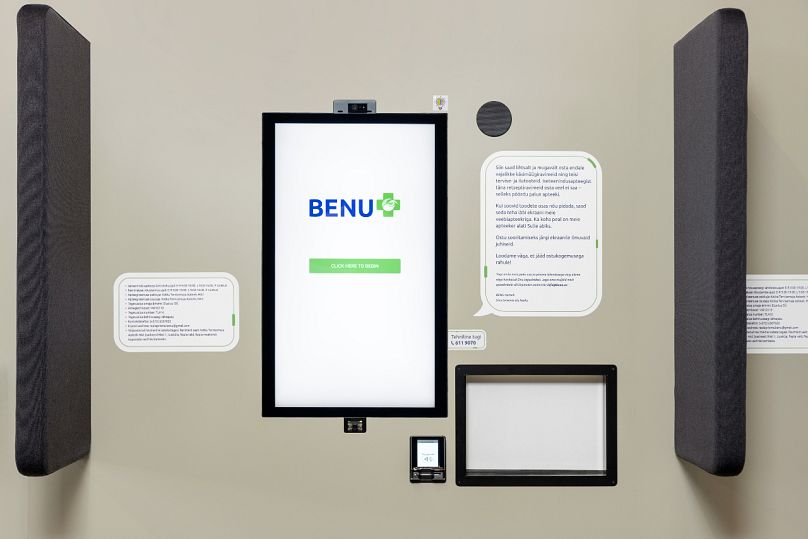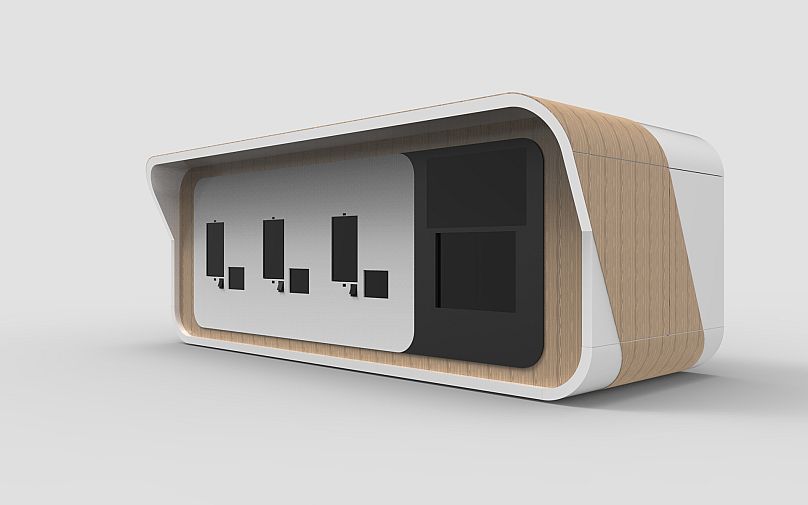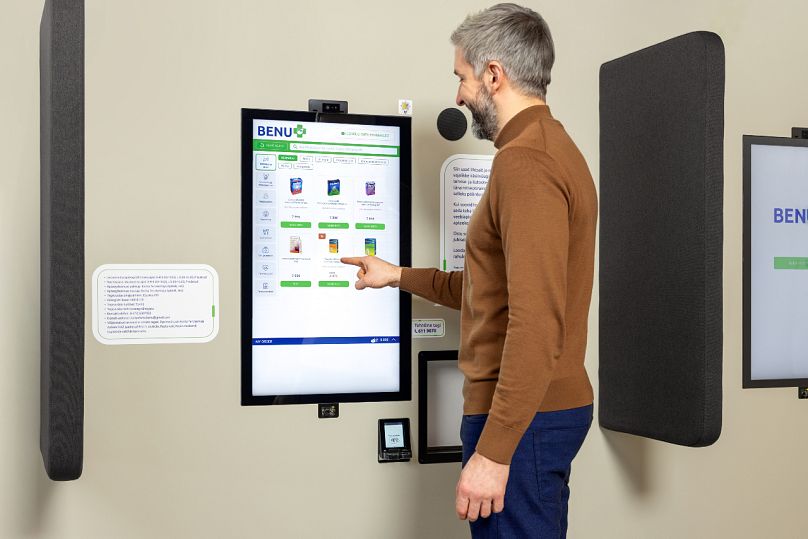This unmanned robotic pharmacy from Estonia could revolutionise out-of-hours healthcare and medicine across Europe.
It's late at night. Your child or loved one is sick and all they need is some medicine.
 ADVERTISEMENT
ADVERTISEMENT
 ADVERTISEMENT
ADVERTISEMENT
If only a pharmacy was open.
This nightmarish scenario may soon be a thing of the past - that is if Grab2Go gets its way.
The Estonian start-up has developed a fully autonomous, unmanned, robotic pharmacy that can operate 24 hours a day, seven days a week.
Their technology, which launched in March, allows patients to buy prescriptions and over-the-counter medicines via a touchscreen and have video consultations with a pharmacist.
Robotic hardware then dispenses a patient's order, while artificial intelligence (AI) analysis of sales data ensures the pharmacy is sufficiently stocked.
One of the main benefits of Grab2Go is tackling labour shortages, CEO and co-founder Mart Viilipus told Euronews Next.
"We do not have sufficient numbers of pharmacists. As our solution is fully autonomous, you can have one traditional pharmacy staff taking care of six to eight pharmacies if you divide them between the autonomous ones," he said.
"It's a lot more efficient," Viilipus added.
Many countries around Europe are currently grappling with chronic shortages of pharmacists. Two-thirds of pharmacies in France do not have enough staff, according to the Federation of Pharmaceutical Unions of France (FSPF).
Asked if work could become more intense from covering multiple outlets, Viilipus said pharmacists would actually be freed from more mundane tasks, allowing them to "focus on the most important part of the job: professional consultation".
Automation poses several fundamental questions about how big chains, which have hundreds of stores, work and organise themselves in the future.
Under remote systems, pharmacists can, in theory, be centralised and handle geographically spread locations.
Could automation lead to job losses?
Viilipus points out that their technology also slashes labour costs, detailing retailers can see savings of 75 per cent.
However, questions hang over what would happen to the tens of thousands of staff who support pharmacists if stores were automated.
Grab2Go units can be installed in existing shops or serve as swish, stand-alone stores in remote areas, which may be under-served.
Basic units start at €100,000 and reach €200,000, though Grab2Go says they pay for themselves in a year due to cost savings.
The technology has been tested and safety checked by the Estonian authorities, winning regulatory approval.
Still, dispensing medicines is a delicate task, with potentially fatal consequences if mistakes are made.
"We can ensure that medicines are right because pharmacists can view what is happening via the camera," Grab2Go Chief Technology Officer Ago Mõlder told Euronews Next.
"What products the robotic system is picking up from the shelves is shown on their dashboard, so they can decide whether this can be dispensed or discarded".
Concerns have been raised by some observers that the growing digitalisation of vital services, including healthcare, may exclude groups that aren't as technologically literate as others, such as the elderly.
After rolling out the autonomous pharmacy in Estonia this year, Viilipus says the feedback has been "very positive".
"Once the customer manages to use our solution for the first time, they see there are no issues, that they don't need to be afraid and there is no possibility of something going wrong".
Estonia has grappled with drug shortages in recent months, with people reportedly driving hundreds of kilometres to get vital medicines.
While this situation is largely related to supply issues, affecting several European countries, more disruption centres could alleviate pressure points and even out supply.
"People expect [access to medicine] in smaller villages, towns, and every part of the country," he continued. "They want to know if they have an emergency they can access support 24/7".













